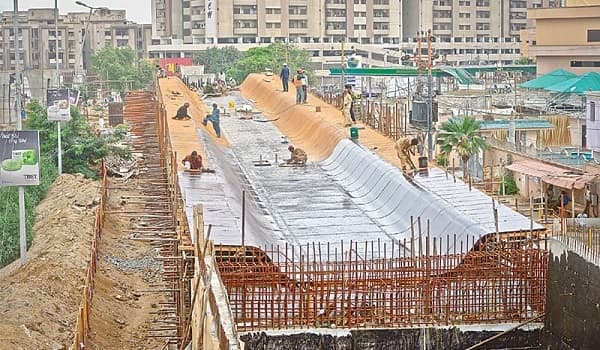Peshawar: The Khyber Pakhtunkhwa (KP) government has officially launched the long-delayed Peshawar Safe City project, following the signing of an agreement with the National Radio and Telecommunication Corporation (NRTC). The Rs2.2 billion project is set to be completed within six months.
Read: Commissioner launches Billion Tree Plus Plantation Drive in Peshawar
The signing ceremony was held at the Chief Minister’s House, where KP Chief Minister Ali Amin Khan Gandapur reaffirmed his government’s commitment to leveraging technology for public safety and improved governance.
In its first phase, the project will see the installation of 710 high-resolution, 12-megapixel CCTV cameras at 125 strategic locations across the city. The surveillance system will be integrated with artificial intelligence, enabling facial recognition, vehicle identification, and real-time alerts to emergency patrol units.
Read: Peshawar may scrap ‘structure tax’ on buildings
The system will also feature e-challan capabilities for 15 traffic offences, with plans for integration into the excise and taxation department’s database to streamline enforcement.
Project Director Rai Ijaz Ahmad confirmed that work would begin immediately, with poles for the cameras being installed first. He noted that unlike older systems in other cities, Peshawar’s Safe City setup would be powered by AI and would connect to various law enforcement databases.
Beyond surveillance, the project aims to establish a central command and control centre and eventually expand its reach through an additional 600 surveillance points. The second phase, estimated at Rs5 billion, will extend to cities including Mardan, Kohat, Nowshera, Swat, and Abbottabad.
Read: Peshawar to become begging-free with PKR 32 mn initiative
The provincial government also plans to implement the Safe City model in six terrorism-affected southern districts, including Dera Ismail Khan, Bannu, Lakki Marwat, North Waziristan, Tank, and Karak.
To support long-term sustainability, the government intends to introduce legislation to establish a Safe City Authority that will regulate and integrate surveillance infrastructure across public and private sectors.
Chief Minister Gandapur called the initiative a “key milestone,” highlighting its role in not only strengthening law enforcement but also restoring public trust in the government’s ability to ensure safety.








